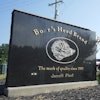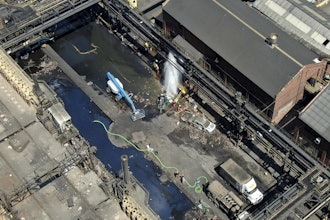
WASHINGTON, May 10, 2017 (USDA FSIS news release) — Kabob’s Acquisition, Inc., a Lake City, Ga. establishment, is recalling 5,946 pounds of turkey and ham sandwich products which included a non-meat ingredient that was recalled due to Listeria monocytogenes, the U.S. Department of Agriculture’s Food Safety and Inspection Service (FSIS) announced this week.
The Monte Cristo (turkey, ham, cheese, on French toast) sandwiches were produced from May 1, 2014 through February 1, 2017. The following products are subject to recall:
- 13.25-lb. bulk cases containing 200 “Kabobs MONTE CRISTO TURKEY BREAST, HAM AND CHEESE SANDWICH” in shrink wrapped plastic trays and bearing case codes: PM14E27, PM14H14, PM14J10, PM14E01, PM14E12, PM14E13, PM15C26, PM15E06, PM15G23, PM14L18, PM15A08, PM15C26, PM15K20, PM16B08, PM16B09, PM16F22, PM16F24, and PM17B01.
The products subject to recall bear establishment number “P-6640” inside the USDA mark of inspection. These items were shipped to institutional locations in Georgia and South Carolina.
The problem was discovered when Kabob’s Acquisition, Inc., was notified by their French toast ingredient supplier, that the French toast used in the sandwich products was recalled due to potential Lm contamination. There have been no confirmed reports of adverse reactions due to consumption of these products.
Consumption of food contaminated with L. monocytogenes can cause listeriosis, a serious infection that primarily affects older adults, persons with weakened immune systems, and pregnant women and their newborns. Less commonly, persons outside these risk groups are affected.
Listeriosis can cause fever, muscle aches, headache, stiff neck, confusion, loss of balance and convulsions sometimes preceded by diarrhea or other gastrointestinal symptoms. An invasive infection spreads beyond the gastrointestinal tract. In pregnant women, the infection can cause miscarriages, stillbirths, premature delivery or life-threatening infection of the newborn. In addition, serious and sometimes fatal infections in older adults and persons with weakened immune systems. Listeriosis is treated with antibiotics. Persons in the higher-risk categories who experience flu-like symptoms within two months after eating contaminated food should seek medical care and tell the health care provider about eating the contaminated food.





















